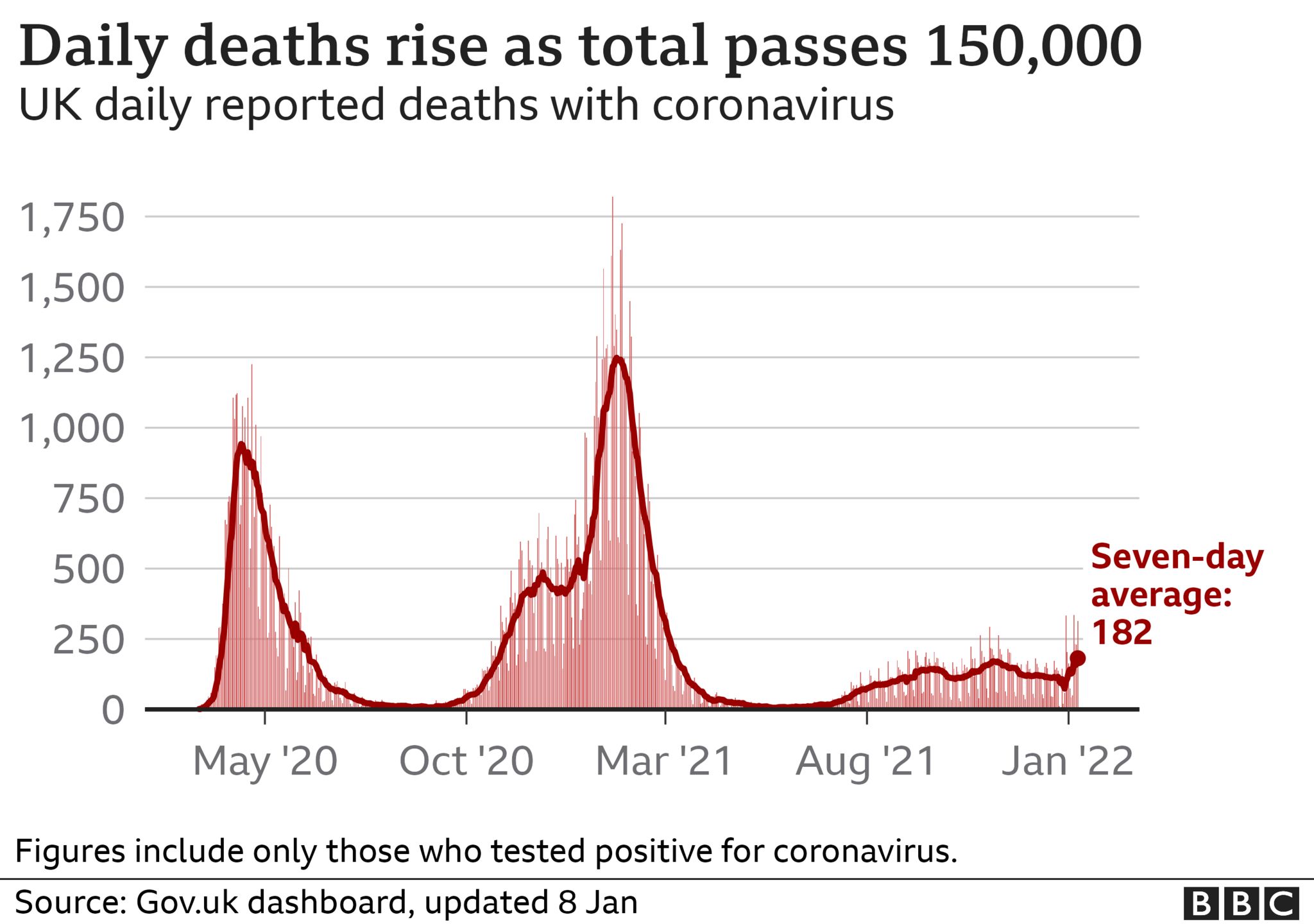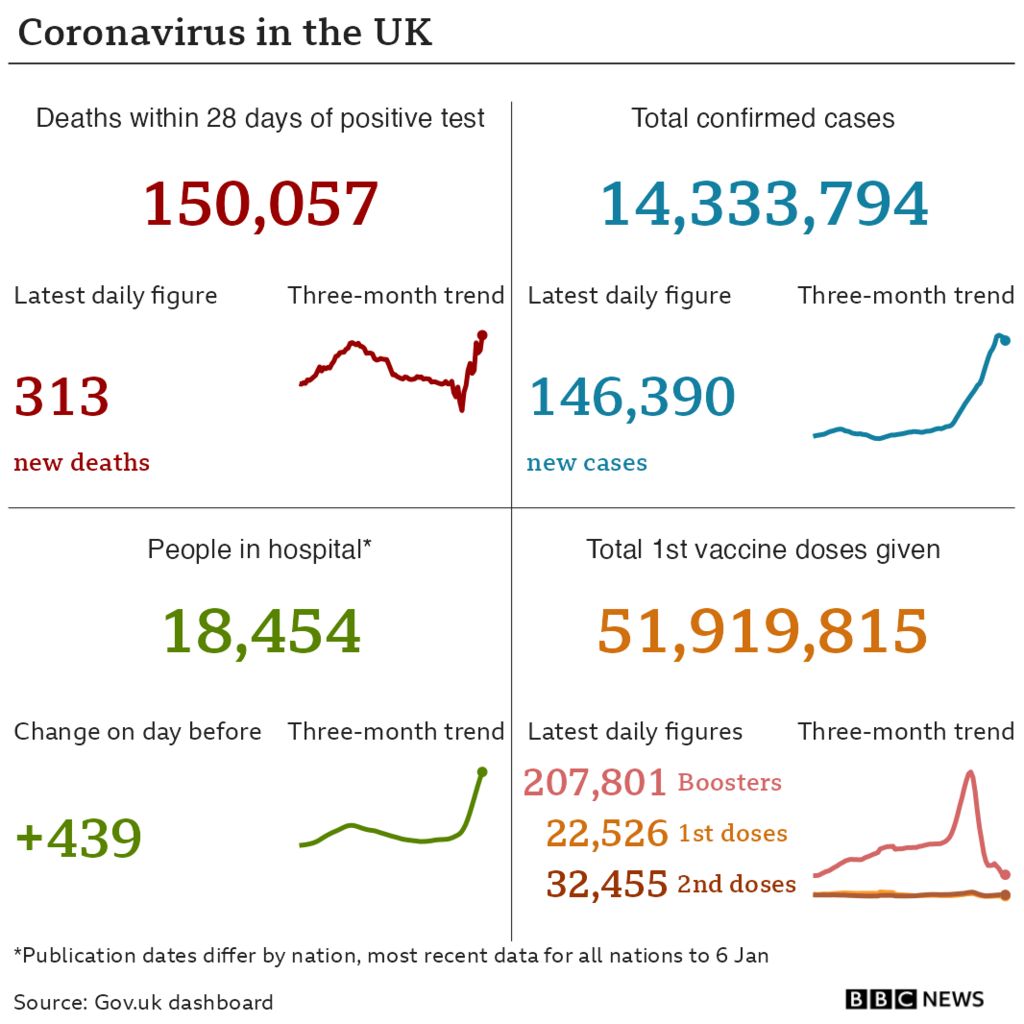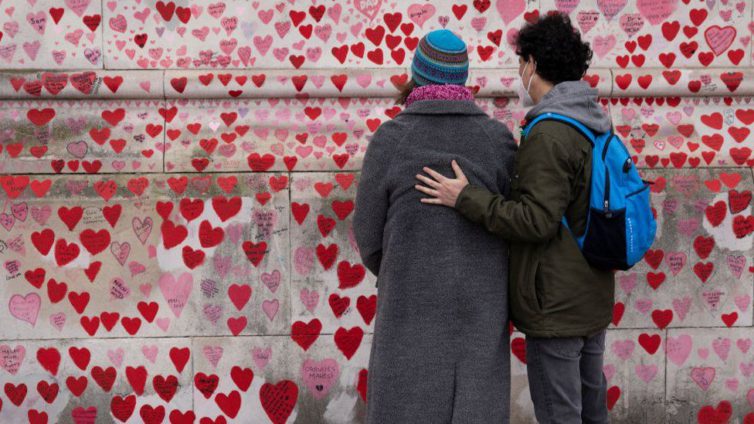More than 150,000 people in the UK have died within 28 days of a positive Covid-19 test since the pandemic began.
A further 313 deaths were reported in the government's daily figures on Saturday, taking the total to 150,057.
The UK is the seventh country to pass 150,000 reported deaths, after the US, Brazil, India, Russia, Mexico and Peru.
Some 146,390 new cases have also been recorded in the UK, with the more transmissible Omicron variant driving a surge in infections.
The number of deaths within 28 days of a positive test has also begun to rise, with a total of 1,271 in the past seven days up 38.3% on the previous week.
The impact of vaccinations means Covid hospital admissions and deaths are not rising as quickly as during previous waves.
However, hospitals remain under pressure due to rising admissions and Covid-19-related staff absences.

The Office for National Statistics records the number of deaths where Covid-19 is mentioned as a cause on the death certificate, even if the person had not been tested for the virus, with a total of 173,248 deaths recorded up to 24 December.
In January 2021, the UK was the first European nation and fifth country to pass 100,000 reported Covid-19 deaths.
It's almost a year since the UK recorded 100,000 deaths. Most of those came in two waves - a sharp sudden surge in the spring followed by a slow, sustained rise in the autumn and winter of 2020 into 2021, largely before vaccines were available.
On 8 December, 2020, 90-year-old Margaret Keenan made history by being the first person to receive a Covid-19 jab as part of the UK's national rollout.
Vaccines have been the real success story of the pandemic, weakening the link between infections and serious illness and deaths from the virus. But some fatalities are still inevitable.
Today, the total number of deaths in the UK stands at more than 150,000. It is a sobering reminder of why societies cannot ignore Covid-19. It hasn't gone away.

Prime Minister Boris Johnson has said he hopes England can "ride out" the current wave of infections without further restrictions, although he acknowledged parts of the NHS would feel "temporarily overwhelmed".
England is currently under Plan B restrictions, which includes mandatory face masks in most public indoor spaces, Covid-19 passes for entry to some large venues and advice to work from home where possible.
Scotland, Wales and Northern Ireland have already introduced tougher measures for hospitality venues.

.
Latest Stories
-
‘None of us expected this outcome, but God intervened’ – Speaker Bagbin on 2024 Elections
1 minute -
Court convict’s miner for setting stepfather’s house on fire
6 minutes -
‘Ghana remains a beacon of hope and democracy for Africa’ – Bagbin urges unity after 2024 elections
10 minutes -
Herbalist, 45, jailed for defiling 10-year-old boy
21 minutes -
‘The future is bright’ – Speaker Bagbin inspires youth in Christmas message
35 minutes -
Cucumbers – Making the most of them
6 hours -
Revenue growth to slowdown to GH¢209.3bn in 2025; T-bills will not be restructured – IC Research
7 hours -
Deloitte celebrates end-of-year Thanksgiving Service
7 hours -
Inflation to end 2025 between 10% and 12% – Databank Research
8 hours -
Government’s commitment to fiscal consolidation to remain strong in 2025
8 hours -
ImageBureau, April Communications take theatre to Nsawam Prisons
8 hours -
Bird flu kills 20 big cats at US animal sanctuary
8 hours -
Your peaceful conduct saved the country from tension – Clergymen commend Bawumia
8 hours -
A Nite of 1031 Laughs & Music to provide emergency insurance for patrons
8 hours -
Body found in wheel well of United plane after landing in Hawaii
9 hours

